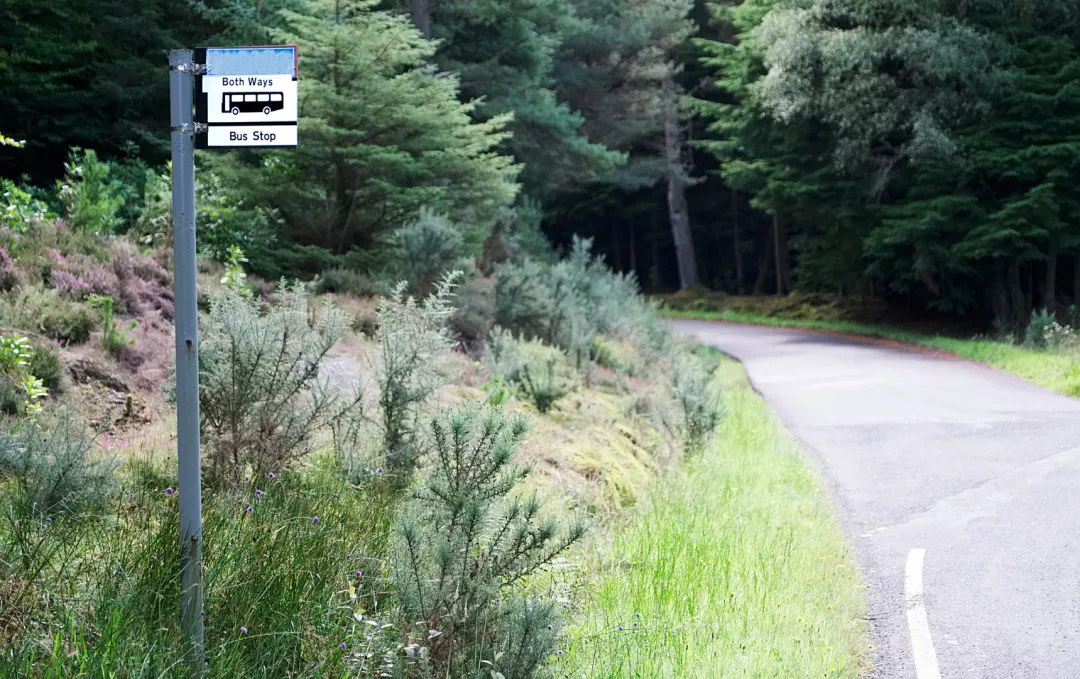This Good Practice Webinar, organised by the Rural Pact Support Office in collaboration with SMARTA-NET, focused on the role that local communities play in enhancing the mobility options on their territories and contributing to a fair socio-economic development of the area.
The webinar, organised in collaboration with SMARTA-NET, showcased inspiring lighthouse examples of developing smart mobility in and between rural areas and improving accessibility with peri-urban areas. It focused on three main implications of improving rural mobility:
- Supporting the development of rural tourism;
- Enhancing mobility for strengthening access to basic services (e.g. health, education, leisure);
- Strengthening territorial and social cohesion.
Agenda
(PDF – 180.96 KB)

Image by Richard Johnson on Getty Images
Objectives
The event provided opportunities to:
- Exchange and learn from local experiences and initiatives that enhance rural mobility and contribute to the social, economic and environment development of local communities;
- Build the capacity of participants to promote rural mobility through anticipating, planning and delivering effective, high-quality projects responding to rural needs;
- Encourage and mobilise the Rural Pact Community and European Rural Mobility Network to undertake actions linked to addressing mobility issues in their specific contexts.
The webinar was targeted at project implementers and developers of mobility initiatives in rural areas, including potential project holders in local communities, regional and national private and public actors.
Video recordings
- Welcome to the webinar
- EU initiatives to foster support for rural mobility
- Learning from inspirational projects and practices
- Enabling local communities to take action to enhance rural mobility: panel discussion
- Enhanced mobility for developing key economic sectors, discussion group 1
- Enhanced mobility for strengthening access to basic services, discussion group 2
- Enhanced mobility for territorial and social cohesion, discussion group 3
- Reporting back from discussion groups and closing remarks
Discussion groups - Miro boards
- Group 1: Enhanced mobility for developing key economic sectors such as tourism
- Group 2: Enhanced mobility for strengthening access to basic services (e.g. health, education, leisure)
- Group 3: Enhanced mobility for territorial and social cohesion
Relevant resources
- Join the Rural Pact Community Group on Rural Mobility
- Smart Villages and rural mobility
- SMARTA 1 & 2 projects
- SMARTA-NET
Background
Improving mobility is among the most pressing needs in rural, remote and peri-urban areas to foster inclusive economic development, improve social equity and tackle climate change. Limited transport options in these areas hinder access to basic services, jobs, health services and social activities, impacting population density and the cost of public transport.
The report on the implementation of the EU’s rural vision published on 27 March 2024 highlights that the New EU Urban Mobility Framework will include specific actions to better integrate the urban, peri-urban and rural linkages. This will be done through further development of the Sustainable Urban Mobility Plans (SUMPs), where dedicated attention will go to better support connectivity between rural, peri-urban areas and metropolitan/urban areas.
Additionally, the Barcelona Declaration signed under the Spanish Presidency of Council of the European Union constitutes a strong commitment to accessible, affordable, and equitable mobility to promote social and territorial cohesion.
Maintaining or improving public transport services and connections is essential to achieve the aim of the long-term vision for EU’s rural areas for connected rural areas. The related Rural Action Plan supports the flagship initiative SMARTA-NET - coordinated by the European Commission’s DG MOVE, building on the SMARTA 1 and 2 projects to enhance sustainable and resilient mobility connections.
The Rural Pact Support office recently launched a new online Community Group on Rural Mobility to bring together stakeholders to connect with peers, exchange, share information on this topic.
Additional info
Organiser

Rural Pact Support Office
Other

